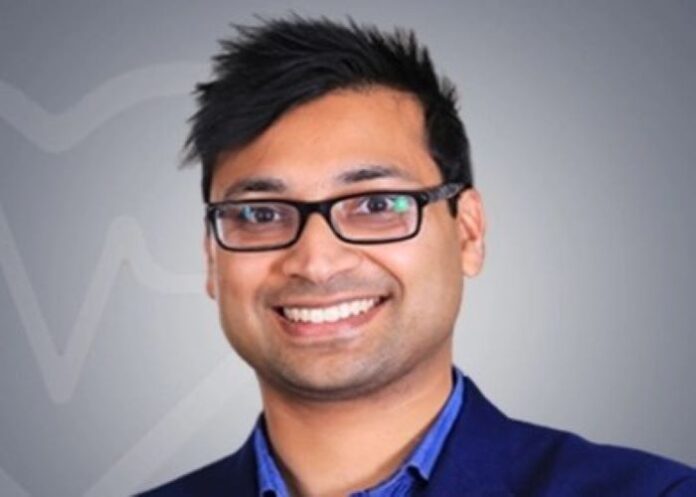A leading radiation oncologist in Johannesburg has formed a foundation in memory of his late father and aunt, uniting experts from the local oncology community, with the goal being to provide vulnerable uninsured cancer patients with access to treatment and support services.
Dr Sudeshen Naidoo, who practises at the Sandton Oncology Centre, said the cancer crisis in South Africa is becoming insurmountable, where having treatment and care is disproportionately associated with socio-economic status, access to medical aids, and geographic location.
Many treatments are unaffordable for partially insured or uninsured patients and the situation is worsened in state hospitals by long waiting lists, inadequate human resources and infrastructure weaknesses.
As founder of the Johnson Rose Cancer Foundation – named after his late father and aunt – Naidoo is tackling this human rights crisis via an ambitious multi-pronged approach.
“One of the objectives of the foundation is increase the number of oncologists in South Africa by funding doctors to specialise in the field and to try to retain them in the state sector,” he told The Citizen.
“We also want to provide equitable access to cancer care for partially insured and uninsured people. By directly funding treatment with curative intent, we can prevent many avoidable deaths. The third objective of the Johnson Rose Cancer Foundation is to support families and communities affected by cancer through access to counselling and other support services.”
No stranger to cancer
“I was a child when my aunt Rosie was diagnosed with stage four cancer and died within a few weeks,” he says. Her death solidified his decision to specialise as an oncologist.
In 2019, his father, Dr Johnson Naidoo, was diagnosed with aggressive stomach cancer.
“He could not complete his chemotherapy and radiation treatment due to the side-effects and his age. He was a juggernaut in his field who helped shape Occupational Medicine in KwaZulu-Natal. Just a year after his initial diagnosis, he succumbed to the illness.”
After graduating, Naidoo joined the largest private radiation oncology group practice in the country, and was later appointed as radiation oncology adviser to the Ministry of Health in South Africa from 2017 to 2020.
“During that time I co-authored guidelines and contributed to the National Strategic Cancer Plan in SA 2017-2022. I also authored the report Radiation Oncology Crisis in South Africa, leading to some public private partnerships. This tenure equipped me to understand the complexities involved in enabling access to treatment and has shaped the purpose of the foundation.”
Cancer crisis will be ongoing
He said the cancer crisis in South Africa would continue, for one simple reason.
“Eighty-five percent (of the population are serviced by only 15% of the oncologists in the state sector, while 85% of the oncologists are currently in the private sector, servicing only 15% of the population who are insured,” he said.
This causes bottlenecks in the state sector because there aren’t enough oncologists. With cancer being a time sensitive disease, the sooner a patient receives treatment, the better the outcome.
Unfortunately, a number of patients need to wait months for treatment to start. Even if they receive surgery and chemotherapy, the waiting lists at radiation oncology units are months-long.
“Radiation must occur within a certain window period, which is either two to four weeks after chemotherapy, or four to seven weeks after surgery depending on the stage of disease,” said Naidoo. “So all of those patients are waiting to be treated, to be saved, but unfortunately, they’re waiting too long and are at risk of the disease returning.”
Multi-disciplinary approach
The foundation plans to take take a multi-disciplinary approach that integrates services to focus on the patient and their families. The aim is to partner with government, other NGOs and organisations and refer patients and their families for additional services when required.
This includes support services for transport and accommodation to access treatment and care and referral to services in community, including palliative care and counselling.
The Johnson-Rose Cancer Foundation is led by a dedicated team, including co-founders Dr Keo Tabane and Dr Omondi Ogude, with a board of directors comprising experts from the oncology community, healthcare professionals, patient advocates and social workers.
Importantly, the foundation is also convening an Academic Advisory Committee which is open to all government oncology heads of department, to advise on policy and process.
The registered NPC is the first of its kind in Southern Africa, providing much-needed funding and assistance to state patients and families afflicted by cancer.
Johnson Rose Cancer Foundation (Open access)
The Citizen article – New hope for state cancer patients (Open access)
See more from MedicalBrief archives:
Cancer Alliance explores legal options to compel public/private treatment partnership
Cancer services failing throughout SA
Cancer services take strain as radiation oncologists leave SA state sector
SA has 20% fewer oncologists than two years ago
Cancer Alliance research: Gauteng state hospitals’ failures hamper treatment

